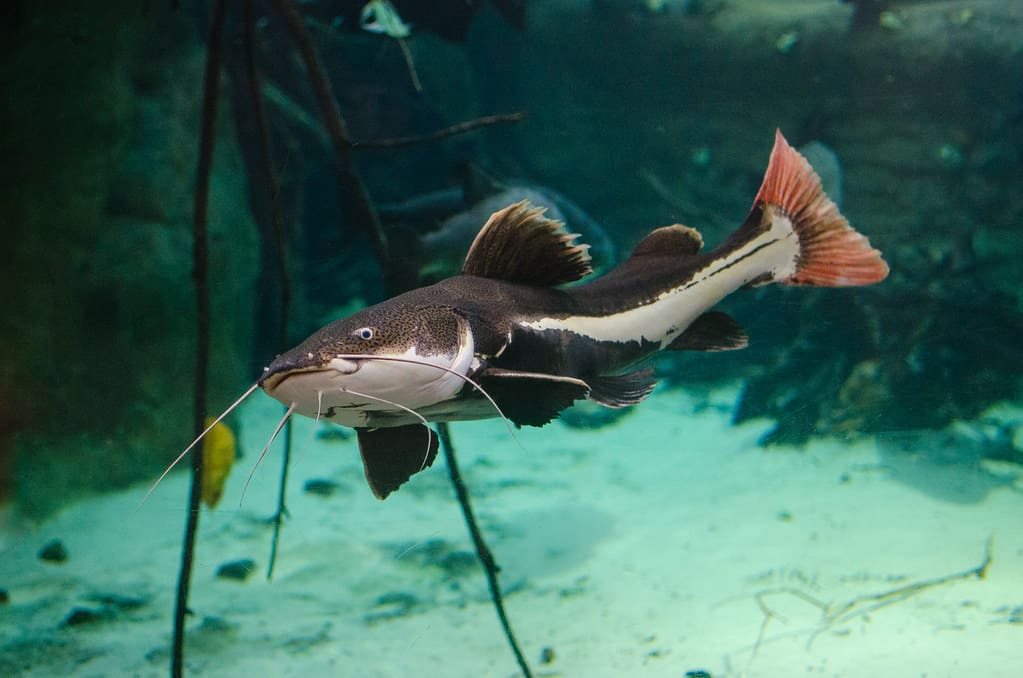- Catfishing is when a person creates a fake, often more appealing online identity to trick other people into befriending them
- While many people catfish for financial gain, there are complex emotional reasons behind other cases – often fuelled by loneliness and social struggles
- It’s incredibly common. In one 2018 study, a third of respondents said they’d been catfished
Social media can enable people to pretend to be something they’re not – whether it’s a perfectly curated Instagram feed or a huge Snapchat following, a person’s Internet presence can often belie their everyday life.
But what happens when someone decides to adopt a completely different identity online, and experience society in another person’s shoes? Catfishing is the practice of creating a totally new digital persona for yourself, often by using pictures and information from someone else’s account.
The main purpose of catfishing is to trick an unwitting stranger – or occasionally a friend or family member – into believing you are someone you’re not. Typically, the fake identity is meant to be more attractive or appealing than the real person. There’s a huge range of motives for catfishing, from personal revenge plots to financial gain. It often involves creating a romantic association with the victim.
But catfishing produces two sets of victims: the people who are duped by the catfisher’s online identity, and the people whose social media identities are stolen by the catfisher.
Catfishing itself isn’t illegal in the UK – although many campaigners believe it should be. And it can lead to illegal activity if the catfisher defames the person they’re impersonating, uses their fake profile to ask for money from victims or engages in other kinds of identity fraud.
According to psychiatrist Dr. Margaret Seide, recent lockdowns may have left people far more vulnerable to being catfished.
“”In this version of life — if you’re following social distancing properly — you don’t really know when you’re going to meet the person, so a person can dream up whatever version of themselves and they’re only limited by their imagination,” Dr Seide noted.
She added that lockdowns can exacerbate feelings of insecurity, as we’re more socially isolated. “That hunger and the desire that they’re cooking up makes them a little more susceptible to someone presenting themselves as their wish fulfilled,” she explained.
Where did catfishing start?

It was a single 2010 documentary that first attached the name to the phenomenon. Simply named Catfish, the documentary sees the photographer Yaniv ‘Nev’ Schulman uncover a catfisher who is masquerading as 15 different people on Facebook.
The documentary is so named for a story told by the catfish’s real-life husband, Vince Pierce. He says that fishermen used to transport live cod in tanks that also contained catfish – a type of predatory, whiskery sea creature. This method seemed to keep the cod more agile, and would supposedly make them taste better.
“There are those people who are catfish in life,” Pierce says in the documentary. “And they keep you on your toes. They keep you guessing, they keep you thinking, they keep you fresh. And I thank God for the catfish because we would be droll, boring and dull if we didn’t have somebody nipping at our fin.” There doesn’t appear to be much evidence for this anecdote.
The term Catfish rapidly became part of everyday language. The documentary spawned a successful spin-off named Catfish: The TV Show, which follows cases of catfishing across the USA – often leading to a dramatic reveal of who the catfisher really is.
However, according to the Cybersmile Foundation, an anti-cyberbullying charity, “the practise of catfishing has been around almost as long as the internet.” Since we first had the option to create online accounts, people have been using fake identities to their advantage.
What makes a catfish?

The motives for catfishing – money and power over an unsuspecting victim – might seem obvious, but the reasons why people are driven to catfishing are often much more complicated.
In 2018, researchers at the University of Queensland, Australia recruited 27 self-professed catfishers to take part in personality tests.
41% of the group said that they believed they were catfishing to alleviate their own loneliness. Struggling to fit in socially was another common factor.
Over two thirds of the group said catfishing allowed them to escape from everyday life, in an almost “magical” experience. Many also said it was difficult to quit catfishing. “It’s hard to stop the addiction,” said one respondent. “Reality hit, and I felt like a sh***y human.”

The Cybersmile Foundation describes how people can also catfish because they are struggling with their sexuality. “When someone is confused or curious about their sexuality, they might create false profiles so they can confidently explore their curiosity without having to reveal their true identity,” the charity notes.
Others are motivated by a desire to get revenge on someone they know, or to humiliate or harass.
The Foundation warns, “They might set up several social media accounts because the recipient of the harassment has blocked their initial catfishing account or they might do it to create the impression that there are growing numbers of people participating in the abuse, in an attempt to overwhelm the victim.”
Harmful impacts
Being catfished can seriously damage your self-confidence and trust in others. It’s common to feel ashamed, embarrassed, and foolish for trusting in a fake identity.
But it’s important to remember that this experience can befall anyone, and you can seek therapy if you’re struggling to move on from it. You can also report online romance scams to Action Fraud.
You can also seek therapy and counselling if you personally feel compelled to catfish people. It can be a very addictive activity – but it can also seriously harm others, as well as harming your own social life.
Warning Signs
It’s crucial to stay alert to catfishing when you’re making connections online. Here are some of the main warnings signs that someone is catfishing you.
They only provide a few images online. Catfishers are limited to the images uploaded by the person they’re impersonating, so they are likelier to show less online engagement and to upload infrequently.
They refuse a video call. It’s essential that catfishers excuse themselves from face-to-face meetings, online as well as in real life, to keep their true identity hidden.
They’re overly affectionate and warm. Excessive compliments and declarations of love and affection from an online acquaintance are often the signs of a financially-motivated catfisher.
They ask for money. To protect yourself from scams, you should never give money to a stranger online.

